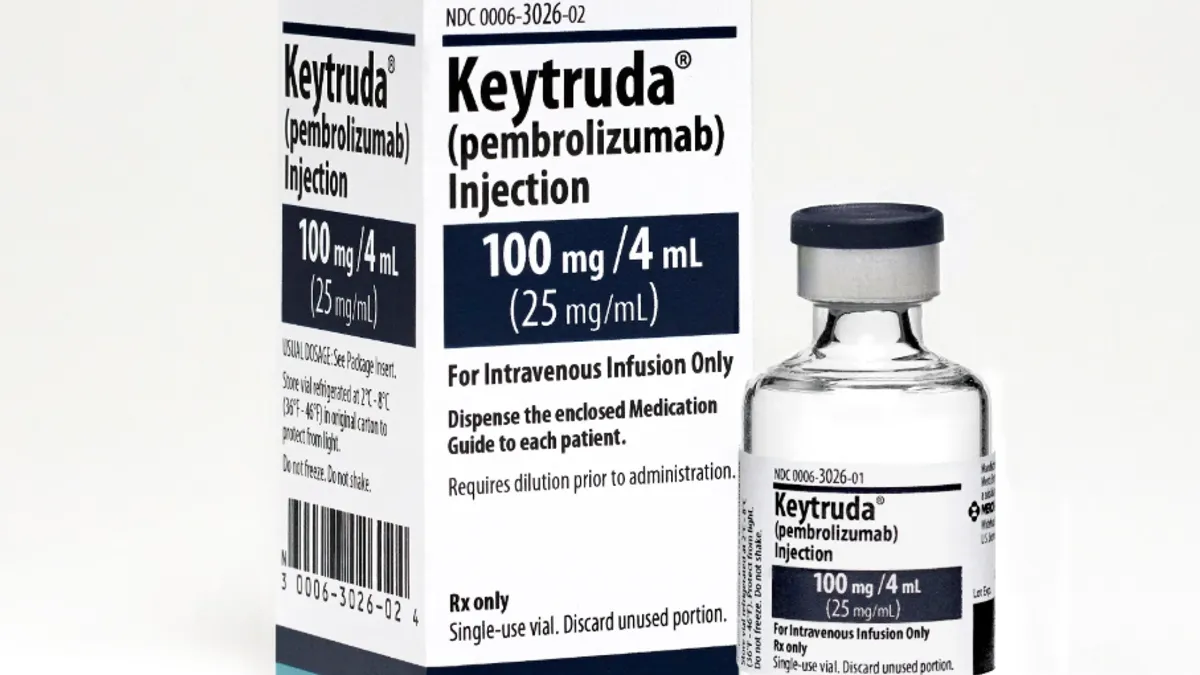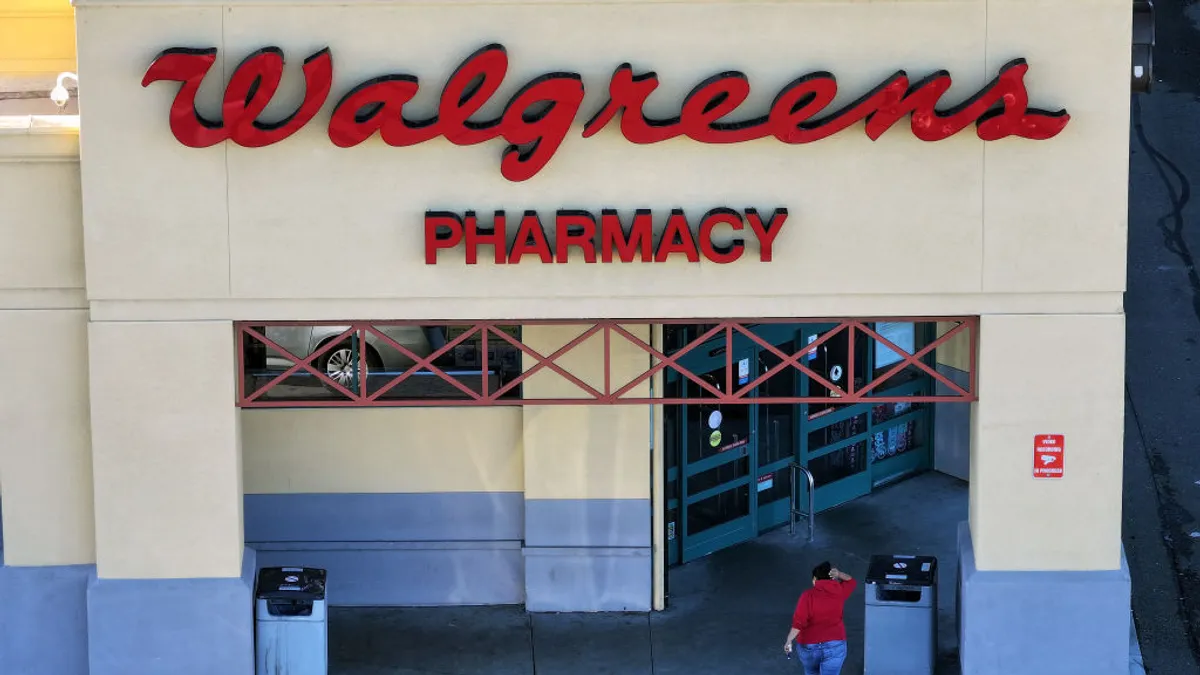Walmart Acquires Telehealth Company MeMD
Trend Watch: Major Retailers Walmart and Amazon Face Off in Telehealth Services
Walmart Acquires Telehealth Company MeMD
 Walmart Health is buying multi-specialty telehealth provider MeMD, which will enable the company to expand its Walmart Health services across the country. Through the acquisition, Walmart Health plans to provide telehealth services for urgent, behavioral, and primary care, the company said.
Walmart Health is buying multi-specialty telehealth provider MeMD, which will enable the company to expand its Walmart Health services across the country. Through the acquisition, Walmart Health plans to provide telehealth services for urgent, behavioral, and primary care, the company said.
“Telehealth offers a great opportunity to expand access and reach consumers where they are and complements our brick-and-mortar Walmart Health locations," says Cheryl Pegus, M.D., executive VP, health and wellness, Walmart. “Today people expect omnichannel access to care, and adding telehealth to our Walmart Health care strategies allows us to provide in-person and digital care across our multiple assets and solutions."
Walmart Health plans to open at least 22 such locations in Georgia, Florida, Illinois, and Arkansas by the end of 2021.
Walmart has also made a push into health insurance by launching a Medicare-focused brokerage and teaming with Clover Health on co-branded Medicare Advantage plans.
MeMD was founded in 2010 by John Shufeldt, M.D., to provide virtual care nationwide, leveraging the latest online technologies to deliver high-quality care 24/7 in a convenient and accessible manner. MeMD provides telehealth for medical and mental-health visits to 5 million members nationwide, according to the company’s website.
“We’ve achieved incredible strides in making healthcare available to individuals and businesses around the country through our easy, affordable and intuitive online platform," said MeMD CEO Bill Goodwin in a statement. “MeMD’s mission fits perfectly with Walmart’s dedicated focus to help people save money and live better, and now we can impact millions more by being part of Walmart."
The acquisition, which is subject to regulatory approval, is expected to close in the coming months.
French Startup Banks on Women’s Health App
 A French startup is introducing a new app focused on women’s health, called Nabla. The app lets women chat with practitioners, offers community content, helps centralize medical data, and will soon offer telemedicine appointments. Nabla’s key feature is the ability to start a conversation with health professionals.
A French startup is introducing a new app focused on women’s health, called Nabla. The app lets women chat with practitioners, offers community content, helps centralize medical data, and will soon offer telemedicine appointments. Nabla’s key feature is the ability to start a conversation with health professionals.
The startup has raised $20.2 million and is already working with a team of doctors who are ready to answer questions from the company’s first users — patients.
The three co-founders of the startup have a track record in the tech ecosystem. Co-founder and CEO Alexandre Lebrun founded VirtuOz, which was acquired by Nuance, and Wit.ai, which was acquired by Facebook. He also worked for Facebook’s AI research team (FAIR). Co-founder and Chief Operating Officer Delphine Groll has been heading business development and communications for two major media groups, Aufeminin and My Little Paris. And Co-founder and Chief Technology Officer Martin Raison has worked with Lebrun at both Wit.ai and Facebook.
Sprout Health and Takeda Explore Rare Disease Digital Tools
 Sprout Health Solutions, a global consultancy specializing in behavior science and health outcomes, has partnered with Takeda Pharmaceutical to develop an evidence-based white paper on the use of digital health tools during COVID-19 for people living with rare disease anda their families and healthcare professionals.
Sprout Health Solutions, a global consultancy specializing in behavior science and health outcomes, has partnered with Takeda Pharmaceutical to develop an evidence-based white paper on the use of digital health tools during COVID-19 for people living with rare disease anda their families and healthcare professionals.
The paper, Digital Health Tools in Rare Diseases, summarizes insights from thought leaders and advocates. The findings underscore the critical role of online and mobile technology in delivering education and support, citing opportunities for future innovations to address unmet needs in the global rare disease community.
According to Lina Eliasson, Ph.D., partner, Sprout Health Solutions, COVID-19 compounded existing difficulties faced by people with rare disease in accessing healthcare and psychological support. The pandemic also provided unprecedented humanitarian and economic stimulus to drive the development and adoption of these technologies at scale and speed.
“The pandemic prompted the digitalization of a pharma-sponsored face-to-face program we were developing for people affected by rare disease," she says. “We saw firsthand how digital tools vastly increased the reach of self-management and mental health interventions for patients and caregivers. Digital technology also ensured global access to a much broader audience of specialist nurses than originally envisioned."
The experience inspired the idea for an in-depth study of digital health tools for rare disease. Takeda, with its long-standing commitment to servicing patients, families, and caregivers affected by rare disease, co-funded the project.
“Our highest priority is our patients," says Lu Zheng, Ph.D., senior director, head of global strategic patient services, Takeda. “We realized that COVID-19 has had considerable effects on people living with rare disease, especially their ability to access and afford critical medical care. This paper is part of our ongoing efforts to understand local challenges and adapt our support programs to meet our patients’ evolving needs."
The white paper features a review of published literature, conducted in January 2021, on the potential impact and effectiveness of digital health tools across a variety of needs in rare disease, including disease self-management, mental health support, and caregiver support. It also includes contributions from thought leaders in rare disease, including a patient advocate, physician, psychotherapist, and industry experts.
Lilly Inks Smart Insulin Pen Deals
With a goal of integrating data and technology to help streamline diabetes management, Eli Lilly and Company signed strategic international agreements with four companies — DexCom, Glooko, myDiabby Healthcare, and Roche — to advance connected solutions and streamline care for people living with diabetes in markets outside of the United States. These companies offer unique diabetes management platforms that will be compatible with Lilly’s Tempo Pen — approved in several global markets — and Tempo Smart Button, which is currently in late-stage development, to support people with diabetes and healthcare professionals.
The Tempo Pen is a modified version of Lilly’s existing prefilled, disposable insulin pen to which the Tempo Smart Button — pending CE marking — attaches. Through these new agreements, the Tempo Smart Button will pair with software and/or medical devices offered by Dexcom, Glooko, myDiabby Healthcare, and Roche, with its mySugr app, to facilitate the integration of personalized data and actionable insights.
Lilly aims to receive the CE mark for the Tempo Smart Button later in 2021 and will launch the Tempo Pen and Tempo Smart Button in several international markets following this certification.
Amazon Care Signs First Employer Customer
Amazon’s virtual primary care business Amazon Care has secured its first employer customer, Precor. It will charge the fitness equipment manufacturer based on how many employees use its services each month. Precor’s 800 employees would be able to use the services, and the company would be only charged when the service is actually used. Amazon Care’s pay-per-user model may be an appealing option for larger employers that pay a fixed cost based on the size of their workforces.
Amazon also announced it would expand Amazon Care to all its employees nationwide by this summer. It’s possible Amazon may eventually sync Amazon Care with its other healthcare ventures such as Amazon Pharmacy, Amazon HealthLake, or its HIPAA-compliant Alexa, to fuel growth, according to eMarketer reports.
CTA, ACC, Philips, Samsung, Abbott Form Initiative for Mobile Device Best Practices
The Consumer Technology Association (CTA) is collaborating with the American College of Cardiology (ACC) on best practices for device and app makers to provide deeper understanding of products that manage cardiovascular health. The working group, which includes members from ACC, Philips, Samsung, Abbott, and Omron, will develop evaluation criteria that companies can use to better educate clinicians as they recommend devices to their patients.
Through this project, experts from the tech sector and healthcare setting will build guidances for device manufacturers in how to communicate the capability of individual products to clinicians and provide support that appropriate devices are being recommended for use by patients.
A multidisciplinary group of leaders in AI and digital health identified the gaps in knowledge around implementing healthcare devices into patient care and determined the need for best practices during discussions at ACC’s Applied Health Innovation Consortium 2020 summit on virtual care, of which CTA is a member.
The working group will hold a series of meetings in 2021 and is scheduled to release the best practices document by the end of the year.
This work also builds upon a digital health white paper released last year by CTA and the Heart Rhythm Society that recommended best practices for using wearable technology to manage personal health, including detecting and monitoring cardiovascular biometrics.
Boost Mobile First Wireless Carrier to Offer Free Healthcare Services
 Boost Mobile, which serves millions of underinsured and uninsured customers, will become the first wireless provider to offer free healthcare services to its subscribers and their families by partnering with K Health. As part of Boost Mobile’s Unlimited Plus plan, new subscribers will receive free, 24/7 access to health services via the K Health app straight from their Boost Mobile phone. This new partnership will deliver free access to remote healthcare services for Boost Mobile customers and their immediate families. Specifically, this will include the opportunity to chat with a doctor directly from a mobile phone; use K Health’s AI-powered symptom checker to understand what is wrong and decide what to do next; and get treatment, including medications prescribed. K Health treats hundreds of adult and pediatric conditions remotely and offers personalized treatment plans, such as for anxiety and depression.
Boost Mobile, which serves millions of underinsured and uninsured customers, will become the first wireless provider to offer free healthcare services to its subscribers and their families by partnering with K Health. As part of Boost Mobile’s Unlimited Plus plan, new subscribers will receive free, 24/7 access to health services via the K Health app straight from their Boost Mobile phone. This new partnership will deliver free access to remote healthcare services for Boost Mobile customers and their immediate families. Specifically, this will include the opportunity to chat with a doctor directly from a mobile phone; use K Health’s AI-powered symptom checker to understand what is wrong and decide what to do next; and get treatment, including medications prescribed. K Health treats hundreds of adult and pediatric conditions remotely and offers personalized treatment plans, such as for anxiety and depression.
K Health will be available for free to new Unlimited Plus subscribers, and for a discounted service fee of $7.99 per month for other Boost Mobile service plans. Boost Mobile customers will be able to take advantage of K Health’s data-driven primary care system with more than 4 million users on its platform. Boost Mobile users can sign up at boostmobile.com/health to be first in line for the official launch early this summer. (PV)

















